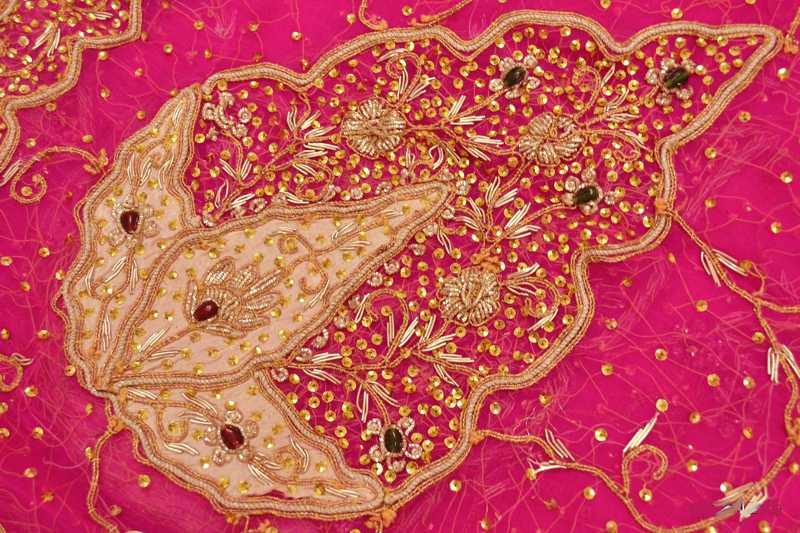===
0226,
9
===

=== |
 |
du-paṭṭā tān ke sonā : 'To sleep with the sheet drawn over the head; to sleep in peace or with a mind at ease; to sleep the sleep of death'. (Platts p.529)
FWP:
SETS == IDIOMS
MOTIFS
NAMES
TERMS == IMPLICATIONThe two idiomatic meanings of dūpaṭṭā tān ke sonā both work beautifully here: 'to sleep in peace or with a mind at ease', and 'to sleep the sleep of death' (see the definition above). Putting the dupatta 'over the face' enhances the effect of renunciation of the ego, the personality, the affairs of daily life.
Mir Dard has his own lovely version of the same mood:
dosto dekhā tamāshā yāñ kā bas
tum raho ab ham to apne ghar chale[friends, we've seen the spectacle of this place-- enough!
you remain; now we're off to our home]Note for meter fans: We have to take dū-paṭṭe as consisting of two separate words, with the dū then being flexible as we would expect, so that it can be shortened. This is not a stretch, because that's obviously how it originated ('[having] two breadths [of cloth]'; see Platts p.529).